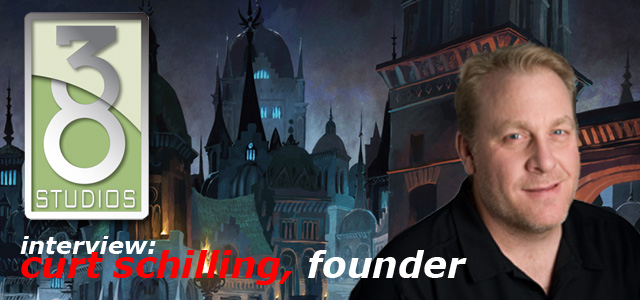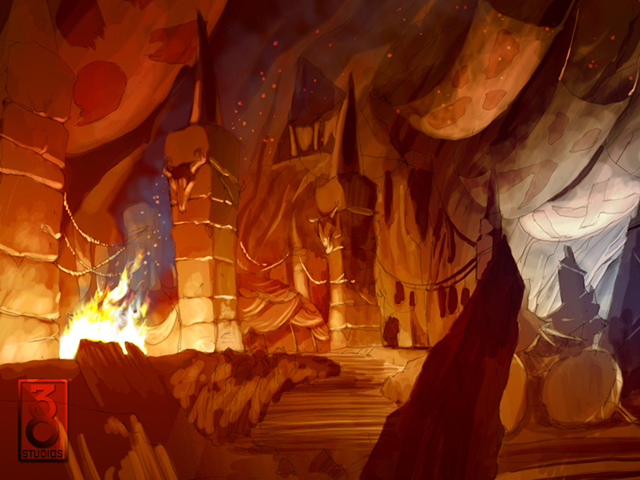
“How cool would it be if..?”
Those are the words at the top of the homepage of Boston (Maynard)- based game developer 38 Studios. That’s the kind of question that all of us have asked at one time or another after finishing a game, usually one that we love. “How cool would it be if… there were no weapons in this game? How cool would it be if… instead of cars there were skateboards to travel around the game world? How cool would it be if… Mario slow down time?”
We had some time during E3 to spend with Founder/Chairman of 38 Studios, Curt Schilling, to find out why that question is so important to him and his company, and how it will shape their vision of the future of MMO games.
Meeting in the cozy, Panera Bread-meets-California Pizza Kitchen of the Farm in Beverly Hills, the first thing to notice about Schilling is his incredible passion about gaming. “You can tell in the first 10 minutes if a game was made by passionate individuals, or was sourced to a company who had no connection to it. Passion always has to come first.” It’s this drive that pushes Schilling and his team, comprised of offices in Maynard, MA and Baltimore, MD, to work on a seemingly unparalleled scope for their upcoming products.

Codenamed “Copernicus“, the game world/intellectual property is an MMOG that spans gaming, comics, web, and media. Schilling, and 8-year vet of the games industry having worked with the likes of Sony, understands that in order for a world to remain sustainable it must extend outside of the typical gaming sphere. In order for “Copernicus” to be successful it needs to build up a universe and community across all of those quadrants.
With help from the veteran storyteller R. A. Salvatore and artist/creator Todd McFarlane, “Copernicus” may be off to a bright start.
Schilling knows that in order to capitalize on his creative staff, he needs to surround them (and himself) with equally creative leadership. He noted how one member of the coding staff requested having a manager with coding knowledge as opposed to just business experience. This results in a rough ratio of about 10% director/manager-level staff and 90% development staff. “I want to manage my team’s growth within the company. I don’t believe in cutting staff once a project is over. I want this to be their last job.”

So back to the question:
“How cool would it be if..?”
Curt Schilling is as passionate as they come. Having won championships and been in the spotlight for years he feels right at home at a video game expo, wearing a t-shirt with his company logos and comfortable shoes. He’s as much a geek as any other attendee, and admits that having the funding available to him has expedited his work. He’s been playing video games his entire life, and as technology advances he sees something that is begging for evolution: story.
“We need to treat customers like our guests. We provide them a service, not a commodity. If they don’t like our product, they won’t buy it. We need to keep them engaged and treat them with as much trust as they give us, if not more.” Gamers, he says, will always be wondering why something didn’t happen. Why something was missing. Or best yet, why something could make an experience better. That’s what drives him forward: answering those questions before they even get asked.
I didn’t notice until the end of our lunch meeting that Curt had been speaking with his hands as much as his voice, flailing them in purposeful circles and shapes. Perhaps that’s one of the reasons that he was so successful at baseball. His ability to tell a story with his hands reaches across gaming and sports, and certainly displays constant thinking and problem-solving. If his passion for games is at least on par with that for baseball, as he says it is, then “Copernicus” (and the first release, “Mercury“) should be an experience unlike any we’ve seen in MMOs yet.
“Copernicus” and “Mercury” are not yet dated, but more details about the projects will be announced in the coming months.
[Images courtesy 38 Studios]


1 Comment